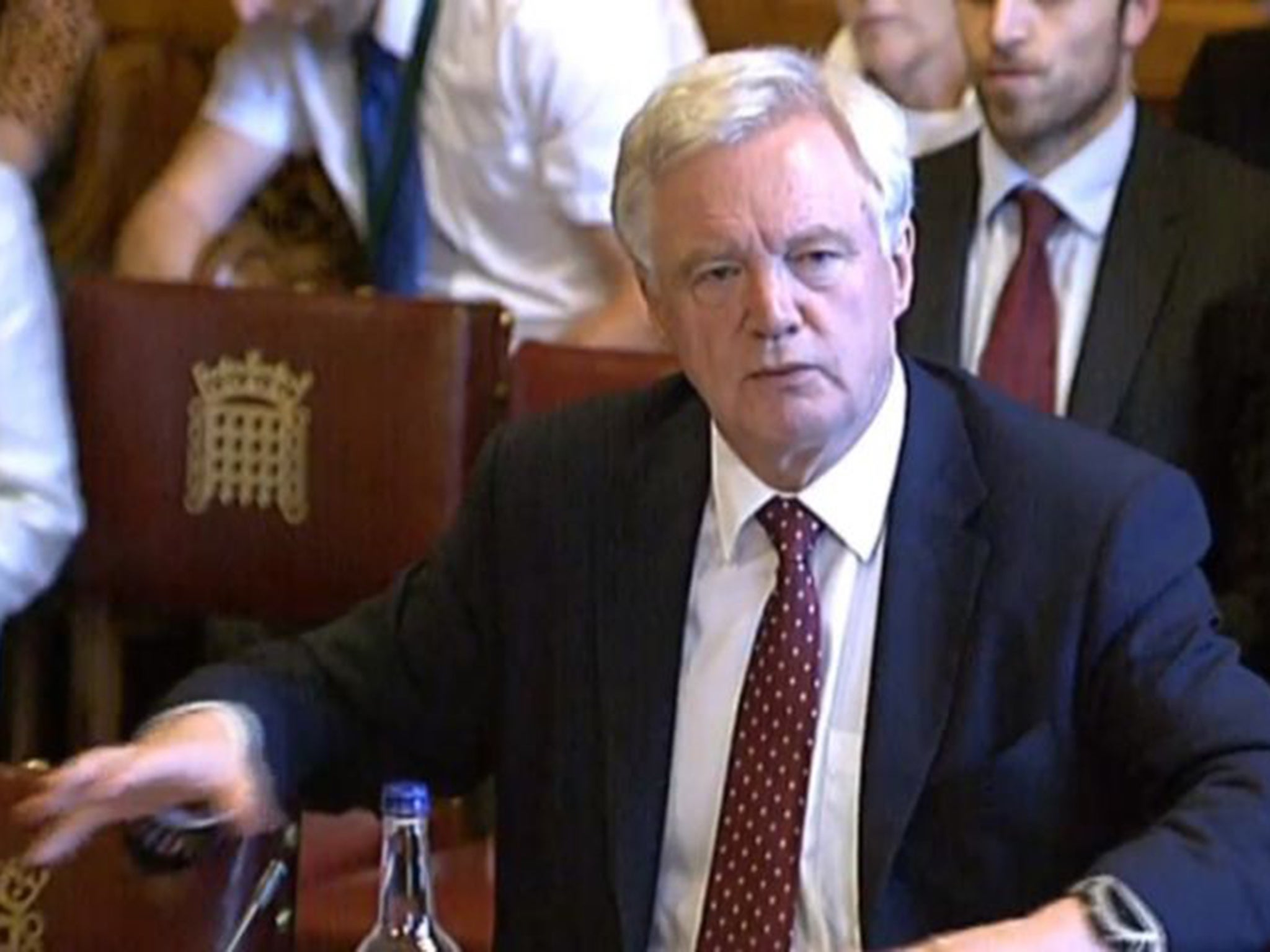If we want to know what role Parliament should play in Brexit and Article 50, we should look to WWII
You might expect me to be critical of the Government’s decision not to ask the House of Commons for approval before triggering Article 50. But that’s simply not the case


Your support helps us to tell the story
From reproductive rights to climate change to Big Tech, The Independent is on the ground when the story is developing. Whether it's investigating the financials of Elon Musk's pro-Trump PAC or producing our latest documentary, 'The A Word', which shines a light on the American women fighting for reproductive rights, we know how important it is to parse out the facts from the messaging.
At such a critical moment in US history, we need reporters on the ground. Your donation allows us to keep sending journalists to speak to both sides of the story.
The Independent is trusted by Americans across the entire political spectrum. And unlike many other quality news outlets, we choose not to lock Americans out of our reporting and analysis with paywalls. We believe quality journalism should be available to everyone, paid for by those who can afford it.
Your support makes all the difference.Parliament has been the central institution of British public life for 750 years. That is why David Davis, Secretary of State for Exiting the European Union, and the Government’s supporters and opponents, have to think very carefully about what Parliament’s role should be in reaching a satisfactory Brexit settlement.
There have been hardly any important events since the 1260s that haven’t involved Parliament. In 1258, leading barons had sought to bring the king, Henry III, under control. One of their demands was that the king should call a “parlemenz” at Oxford. The king objected. There was an armed struggle. But the point was won. By the 1270s, Parliament had started to meet twice a year at Westminster.
Since then Parliament has loomed over monarchs and their subjects except for a period during the disastrous reigns of the Stuarts. Charles I did without Parliament for 11 years. When the royal messenger was on his way with an order to adjourn in 1629, members locked the door and held the Speaker down in his chair. To no avail. Parliament did not meet again until 1640. Two years later, the English civil war began, Parliament versus the King. The King lost.
Yet you may well ask what have the events of 400 years ago to do with Parliament’s role in the Brexit debate? OK; let’s go back just 76 years to an event with which Brexit has sometimes been compared in terms of its importance – the opening stages of the Second World War. On 1 September 1939, German troops had invaded Poland.
Neville Chamberlain was Prime Minister. The House of Commons met on 2 September expecting the Prime Minister to announce an ultimatum telling the Germans that unless they withdrew there would be war. Instead he prevaricated. When Arthur Greenwood, acting Labour leader, rose to speak, the Conservative member, Leo Amery, bawled, “Speak for England, Arthur.” After the House broke up in confusion, Greenwood went to Chamberlain and told him “it would be impossible to hold the House”. The next morning the British ultimatum was delivered and the Second World War began.
Then in May 1940 an attempt to confront German power in Norway had proved to be a disaster. British troops had to be evacuated. Public opinion turned against Neville Chamberlain. On 7 May he opened a two-day debate on the Norwegian campaign. There were many territorial officers whose units had suffered in Norway present among the younger Conservative MPs. They were hostile. The First World War naval hero, Roger Keyes, who had become Conservative MP for Portsmouth North in 1933, attended in the full uniform of an Admiral of the Fleet including medals. He too denounced the Government.
However the most dramatic moment was Amery’s doing again. Turning to Chamberlain, he ended his speech with Cromwell’s words to the Rump Parliament: “Depart, I say, and let us have done with you. In the name of God, go!” It was this that generated the anguished discussions that led to Chamberlain’s resignation and his replacement by Churchill. Never underestimate Parliament.
With this history in mind, and as a lover of Parliament, you might expect me to be critical of the Government’s decision not to ask the House of Commons for approval before triggering Article 50. The pro-Leave Conservative backbencher, Stephen Phillips, put the matter very well. In a letter to the Speaker, Phillips said that bypassing Parliament was “simply not an acceptable way for the executive to proceed”, adding: “I and many others did not exercise our vote in the referendum so as to restore the sovereignty of this Parliament only to see what we regarded as the tyranny of the European Union replaced by that of a Government that apparently wishes to ignore the views of the House on the most important issue facing the nation.”
In fact I am not so worried as Phillips is. It is important to preserve the sanctity of the Referendum vote. For the moment, I am prepared to take at face value the words of David Davis. In the House of Commons on Monday, referring to the Brexit process, he stated: “I want this House to be engaged throughout, and we will observe the constitutional and legal precedents that apply to any new treaty on a new relationship with the European Union. Indeed, my whole approach is about empowering this place.” I trust this will be the case.
Join our commenting forum
Join thought-provoking conversations, follow other Independent readers and see their replies
Comments